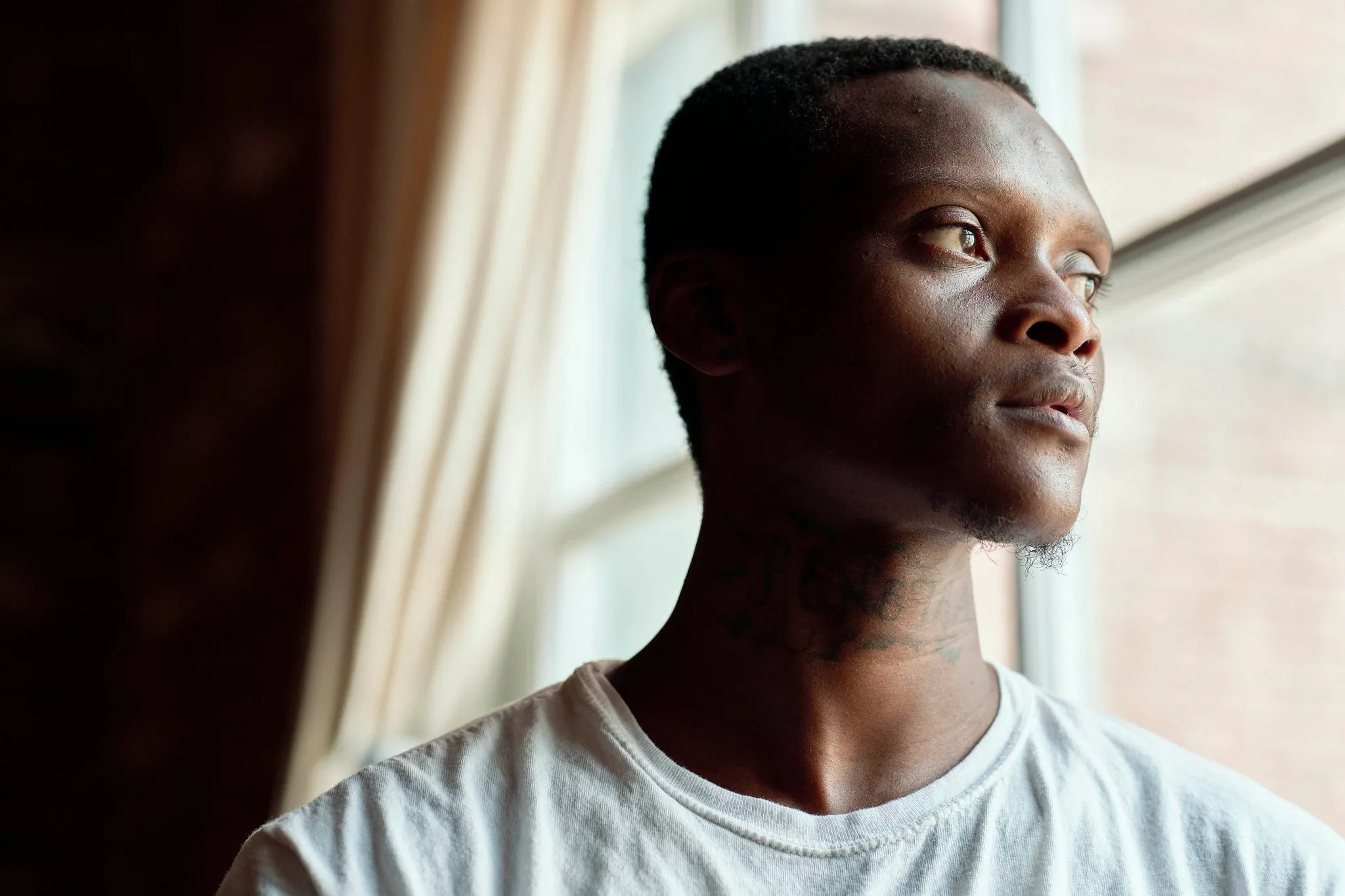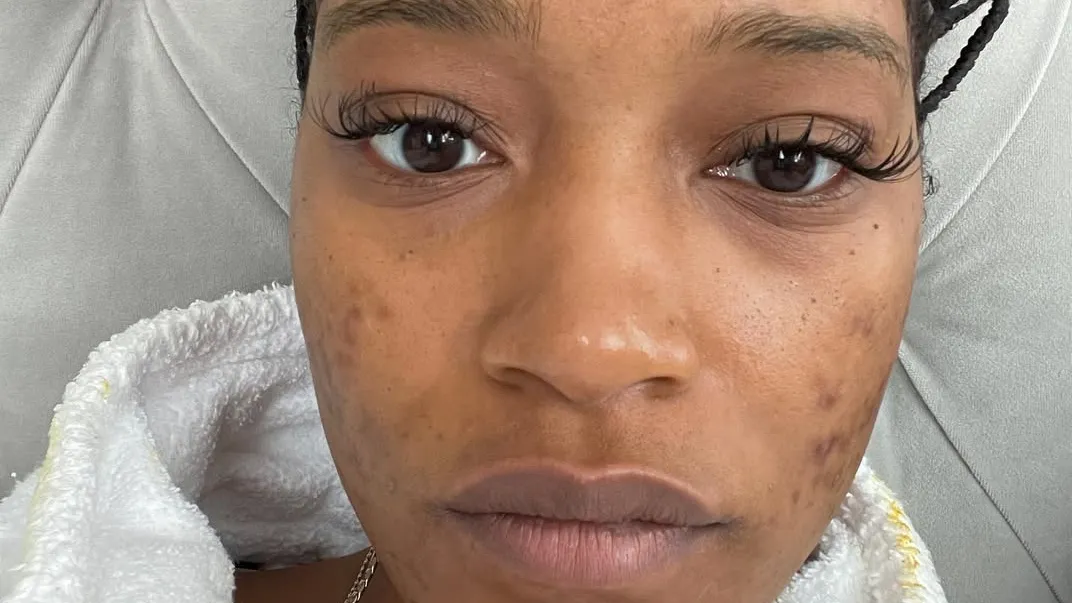By Katie Boyden
Copyright metro

Larry Black Jr was shot in the head in 2019 – and his organs were about to be harvested when a doctor stepped in (Picture: Judd Demaline for KFF Health News)
A surgeon treating a man who had been shot in the head burst into an operating theatre to stop his patient’s organs from being harvested.
Larry Black Jr was moments away from death, his chest exposed, and the surgical team cleaning his skin to prepare for the surgery.
But his doctor demanded the team ‘get him off the table’ and cancel the organ harvesting – and his patient woke up from a coma two days later.
Larry, now 28 years old and a dad of three, was shot in the head on March 24, 2019, when he was aged just 22.
After a week at SSM Health Saint Louis University Hospital in Missouri, he was taken to have his organs removed for donation, even though his heart was still beating and he hadn’t been declared brain dead – either of which must happen before organ donation can take place.
Neurosurgeon Zohny Zohny burst into the operating theatre and saved his patient’s life – but Larry still has horrific memories of his time lying in a medically induced coma.
Zohny Zohny was in his first year of neurosurgery when he saved Larry Black’s life (Picture: LinkedIn)
And his family has raised concerns about staff acting ‘pushy’ when asking for permission to harvest Larry’s organs.
Speaking to KFF Health News, Larry said he still needs regular physical therapy for lingering health issues caused by the gun injury.
Describing his memories of the week after being shot, he said: ‘I heard my mama yelling. Everybody was there yelling my name, crying, playing my favorite songs, sending prayers up.
‘I got to hitting my hand on the side of the ICU bed. They were like: “That’s just the reaction, the side effects of the medicine. Ask him some questions”.
‘[My sister’s] like, “If you want them to pull a plug, if you’re tired and you giving up, blink once. If you still got some fight in you, blink more than once”.’
Larry and his sister both remember him blinking more than once and hitting the side of the bed to let his family know he was still there.
Hospital staff said the movement was involuntary.
Meanwhile, in a waiting room, a woman with brochures told Larry’s sister, Macquel Payne, and the rest of his family that he had identified himself as a potential organ donor.
She wanted to know if the family wished to move forward with the process if Larry died.
Macquel Payne described hospital staff as ‘pushy’ when asking if they would allow Larry’s organs to be harvested (Picture: Cara Anthony/KFF Health News)
Macquel said: ‘I remember my mom saying, “Not right now, it’s kind of too soon.”
‘She was like, “Well, can I at least leave you some brochures or something?”. Then my mom got a little agitated because it felt like she was being, like, pushy.
‘I believe in saving lives, but don’t be pushy about it.’
Tragically, Larry’s family already knew about the organ donation process after his teenage brother Miguel Payne drowned in a local lake in 2007, and his donated tissues helped multiple people.
But when Dr Zohny heard over the hospital loudspeaker that Larry was being taken for his ‘hero’s walk’ – a tradition which honours the life of an organ donor before harvesting begins – he was taken aback.
He explained: ‘This was my first year. Your first year out as a neurosurgeon is the riskiest time for you. Any mistakes, anything small, basically derail your career.
‘So the moment this happened, my legs went weak and I was very nervous because, at the end of the day, your job as a doctor is to be perfect.
‘In my opinion, no family would ever consent to organ donation unless they were given an impression that their family member had a very poor prognosis.
‘I never had a conversation with the family about the prognosis, because it was too early to have that discussion.’
Larry is now a dad of three (Picture: Facebook)
Dr Zohny knew he was taking a risk when he barged into the operating theatre, but he remembered thinking: ‘The worst-case scenario for me is that I lose my job. Worst-case scenario for him, he wrongfully loses his life.’
After being returned to the ICU, Larry was taken off all sedative medications and was awake two days later, standing within a week.
He had to re-learn how to walk, read, and spell, as well as his own name and birthday, and he still suffers occasional seizures as a result of the brain injury.
Dr Zohny said: ‘It’s a miracle that despite flawed policy we were able to save his life. It was an absolute miracle.’
But following the incident, Larry has taken his name off the organ donation register and questions the process.
He said, ‘It’s like they choose people’s destiny for them just because they have an organ donor ribbon on their ID. And that’s not cool.’
Organ donation in the US has faced increasing criticism in recent months after a New York Times investigation found medical providers tried to harvest the organs of 73 patients despite signs of neurological activity.
Those procedures didn’t go ahead in the end – but federal officials vowed to overhaul the organ donation system in response.
Robert F Kennedy Jr said the entire organ donation system ‘must be fixed’ (Picture: Tucker Carlson/YouTube)
Robert F Kennedy Jr said in a statement: ‘Our findings show that hospitals allowed the organ procurement process to begin when patients showed signs of life, and this is horrifying.
‘The entire system must be fixed to ensure that every potential donor’s life is treated with the sanctity it deserves.’
The hospital declined to comment on the details of Black’s case. Kim Henrichsen, president of Saint Louis University Hospital, said the hospital system approaches ‘all situations involving critical illness or end-of-life care with deep compassion and respect’.
Mid-America Transplant is the federally-designated organ procurement organisation that covers the St Louis region.
While the company doesn’t comment on individual cases, executive vice president Lindsey Speir said her organisation has walked away from cases when a patient’s prognosis has changed.
She said: ‘Let me be clear about that. It happens way before then [when they’re in the operating room for harvesting].
‘It definitely happens multiple times a year where we get consent, the family has made the decision, we approach, we get consent, it’s all appropriate, and then a day or so later they improve and we’re like, “whoa”.
‘We’re losing public trust right now. And we’re going to have to regain that.’
Get in touch with our news team by emailing us at webnews@metro.co.uk.
For more stories like this, check our news page.



